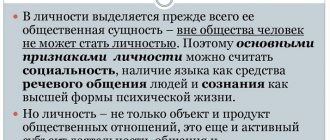Greetings, dear friends! Pavel Yamb is in touch. Despite the fact that, according to statistics, Russia is one of the most literate countries in the world, since almost all of its citizens can read and write, I very often come across words such as “cute”, “birthday” or “birthday”, etc. .
Do you agree that well-written articles are more pleasant to read than text riddled with errors? It seems that at school everyone had lessons in Russian literature and language, but most, it seems, either lost the acquired skills or did not listen to the teacher at all. So how can you refresh your memory? How to “raise” the literacy of a great, powerful adult? After all, competent people achieve success faster!
Let's first take a sober look at the situation and check the level of our literacy. Not happy? Let's begin to enrich our knowledge.
What and how to read?
One of the ways to become a Russian language guru, which we are constantly advised, is to read more. On the one hand, it’s correct: when you read a lot, you remember more words and know how to spell them. But not all literature is equally useful. The best option for useful reading is the classics. There are a lot of interesting works that were not included in the school curriculum, some we read in an abbreviated “demo” version, and others we forgot, so pleasant emotions are guaranteed. For example, from textbooks, the only thing I remember is “The Master and Margarita”.
There is such a technique as spelling reading. Its principle is that children are taught to read as it is written, and not as is commonly spoken. Particular attention is paid to long and complex words that are pronounced syllable by syllable. In this case, auditory memory is connected to visual memory. This is how we quickly remember how words are written. Then, using the “like-dislike” method, you can intuitively determine how an unfamiliar word is spelled.
As you read, you will get a feel for the style, see the compatibility of words, and expand your vocabulary. What if not reading contributes to this?!
Exercises to develop diction
So, we've sorted out the tips. I hope you will not neglect them and introduce at least a couple into your daily life. Now let's move on to specific practical exercises. They are suitable for adults and children from 7–8 years old. You can perform them at home.
Tongue Twisters
Tongue twisters are great for training the pronunciation of sounds and clarity of speech. As a rule, each tongue twister is aimed at practicing a specific sound or combination of sounds. Therefore, I recommend that you first work with those sounds that have problems in pronunciation, and then train all the others.
Here are a few short tongue twisters:
- The crab made a rake for the crab and gave the rake to the crab. Rake the gravel, crab.
- Grass in the yard, firewood on the grass. Don't cut wood on the grass in your yard.
- Advertising for grips has seams with coverage, but potholders without coverage have been snatched up.
- The Queen gave the gentleman a caravel.
Conversation with obstacles
Squeeze the pencil tightly with your teeth and say 10-15 phrases. Try to speak as clearly as possible.
You can also use unshelled walnuts or champagne corks instead of a pencil. Place one nut on each cheek and try to make a small speech. You can recite your favorite poem or read an excerpt from a book.
After this exercise you will immediately feel the effect. Speaking with a free mouth will become much easier.
Voice acting
Actors who voice characters in films and cartoons have excellent diction. Try yourself in this interesting role. Take a short clip of the film and learn the characters' lines. Then play this passage on silent and voice it. Be sure to record the voiceover on a voice recorder.
It is unlikely that you will be able to voice it properly the first time. Try until you achieve perfect pronunciation and expression.
Pronouncing difficult words
By difficult words I mean words with a combination of letters that is difficult to pronounce. When you encounter them for the first time, it will be very difficult for you to read them without errors right away. But once you have thoroughly practiced the pronunciation, you will no longer have problems with these words. Say them slowly at first, and then as quickly as possible.
Here is a list of words for example:
- who took advantage
- P.S,
- illustrated
- phantasmagoric,
- disheveled,
- reverb,
- over-anxious,
- counter-breakthrough
Start with this list. When you can pronounce all the words clearly and beautifully without a single hesitation, make a new list.
Practicing the sounds Ж and Ш
Say the following pairs of words as clearly as possible: “fat - wide”, “heat - ball”, “frog - hat”, “live - sew”, “creepy - joke”. Then read the tongue twister: “The crane Zhura lived on the roof of Shura. The crane Zhura lived on the roof of Shura.”
Practicing sounds K and G
Repeat the following pairs of words until you can pronounce them quickly and clearly: “year - cat”, “Gesha - Kesha”, “goal - stake”, “guest - bone”, “bend - whip”, “goal - stake”. Then read the tongue twister: “Klusha Glasha prepared porridge with pear. And Glasha treated Klusha to yogurt.”
Practicing sounds Z and S
Read the following words: “gaze - rubbish”, “tooth - soup”, “zev - sow”, “green - salty”, “Zoyka - jay”. Then say the tongue twister: “The snake snaked, the snake laughed, the snake laughed, the snake laughed.”
Practicing sounds B and P
Read the following pairs of words: “bar - steam”, “ball - fell”, “pain - field”, “bravo - right”, “board - port”, “white - sang”. Read the tongue twister: “The bull is blunt-lipped, the bull is blunt-lipped, the bull has a white lip and is blunt.”
Practicing the sound C
Repeat the pairs of words: “heron - saber”, “street - fox”, “color - light”, “clack - juice”, “circus - cheese”, “target - mudflow”. Read the tongue twister: “The prices of valuables are priceless for valuables from antiquity.”
Prepositions
Combining prepositions that end with a consonant with words that begin with a consonant is a weak point for many. You need to learn to pronounce them clearly and articulately.
Read the following phrases out loud until your pronunciation is perfect:
- to Boris, to Makar, to Gordey, to Katya, to Galina, to Trofim, to Glasha;
- from the road, from the sidewalk, from Broadway, from the platform, from the tree, from the bird market;
- over the village, over the firewood, over the grass, over the steep, over the brother, over the test tube, over the door;
- under the block, under Tver, under Torzhok, under the sleepers, under the helmet, under the drill, under the building;
- in a crow's nest, in a lantern, in troubled times, on sale, in adulthood, in a vase, in physics.
Endings
Another common problem among Russian speakers is swallowing endings. Learn to pronounce endings as clearly as the rest of the word. When reading aloud, make a special emphasis on them. You can even raise your voice slightly, since most often we pronounce endings more quietly than necessary.
Desk book? Dictionary!
Increasing literacy levels is not a matter of one day or even a few months. If you decide to thoroughly improve your literacy, then your reference book should be a Russian language dictionary. If you have the slightest uncertainty about the correct spelling, you should contact it. Have you come across an unfamiliar word? Also open a dictionary, find out the meaning and how to write. Another good way to expand your vocabulary.
Don't be afraid that large volumes will fill the room. After all, electronic versions of all dictionaries are freely available on the Internet. Here, dic.academic.ru.
Modern people also have the opportunity to improve their literacy online with the help of special resources. For example, there is such a useful service - Gramota.ru, with explanations, rules, and reference materials. We go to the site, type a questionable word in the line, press Enter - and the correct answer is before our eyes. Comfortable! And this is not the only site of this kind.
Pay attention to such resources as:
- “Total dictation” – a complete online school, everything is free;
- “True Words” – native speech courses for primary and secondary school children, linguistic games, online Olympiads. The service is paid, but you can try the free option;
- “I can write” – Russian language lessons, paid and free courses, webinars, textbooks, tests;
- “Education in Russian” – free interactive textbooks, online platforms for learning Russian as a foreign language;
- “Write More Lively” is a free course that will help rid your texts of verbal garbage;
- “textologia.ru” is an online magazine about Russian language and literature.
Expert advice
It is very easy to recognize literate speech. She is confident, but not loud, you want to listen to her and agree with the speaker in everything. Experts will tell you how to enrich your speech:
- Getting rid of parasitic words. Write them down on a piece of paper and evaluate your weak points. In everyday communication with people, try to avoid their pronunciation. Excessive use of them repels listeners. The words parasites are used due to the paucity of speech.
- Speech development involves reading books out loud. This not only develops memory, but also deposits information in the subconscious about what speech should be like in a literate and educated person.
- The question of how to develop your speech is irrelevant if a person is by nature tense and complex. You need to get rid of this first. If a person is unable to do this on his own, a qualified psychologist will help.
We talked about how to develop competent speech. Be confident in yourself, train on your own as much as you can, and within a month you will begin to reap the benefits of your efforts. Developing your speech and learning public speaking skills is not only pleasant, but also necessary for everyday life.
Let's play and improve literacy
You can learn literacy easily and playfully. Do you like to solve crosswords? Wonderful! This means you learn new words and remember how they are written. Word puzzles, tests, anagrams, charades, and rebuses also perfectly develop our intellectual abilities.
If you have problems with oral speech, record yourself on a voice recorder. It’s very funny to listen to yourself, how many “like”, “in short”, “uh” we use! Pay attention to filler words and sentence construction. Speak the same passage after correcting all the shortcomings. The result will not be long in coming!
Main causes of speech problems
It is impossible to achieve positive results in the development of diction if you do not understand the causes of speech disorders. Only rarely are they associated with health problems and develop, for example, due to an abnormal jaw structure or a short frenulum of the tongue.
For many people, speech problems are caused by incorrect pronunciation of whistling and hissing sounds, as well as the absence of the “L” or “R” sounds, or a violation of their pronunciation. A weakened articulatory apparatus may also be the cause.
Even if a person can speak well, pronouncing all sounds correctly, in particularly significant situations his speech may become slurred and unclear. After all, when pronouncing words, the articulatory apparatus needs to very quickly switch from one movement to another. This can only be achieved through active and intensive work of the muscles that need to be trained, for example, by regularly pronouncing tongue twisters for diction.
However, the main reason for slurred, quiet speech is a person’s shyness and lack of self-confidence. In such a situation, the development of diction is a secondary problem. First of all, you need to work on your own character and fight complexes.
We attend courses
If you cannot achieve good results on your own, take literacy courses. With the help of specialists, things will go much faster. Such courses are also available online.
There are also assistant services for improving literacy, for example, Tutoronline.ru. Leave a request and study with a Russian language or literature tutor via Skype.
Compliance with Russian language requirements is mandatory by default in any field. So, we remember or learn the rules. In the case where the work is checked by a proofreader before sending, why not ask him to report any violation of language norms? If you learn the rule, you improve your literacy. If you do this all the time, you will be able to compete with the inspector.
But not everyone has a colleague who is a proofreader. Then your salvation is textbooks. Don't be lazy, open them more often, read the rules yourself!
Programs for learning Russian
There are a large number of programs for your phone that allow you to study at any time and anywhere. It is very convenient to use them when you have a free minute at work or you are stuck in a traffic jam - study anywhere.
- Letters - 4 answer options are given, and only one of them is correct. You can compete with a friend.
- Spelling – texts with missing places that need to be filled in.
- Spelling test is carried out in the style of the game “who wants to become a millionaire”.
- Word of the day - every day the program talks about a rare and little-known word in the Russian language, explaining its meaning.
You can find many more training programs, but these are the most popular and time-tested.
Write!
Write every day, this way you will increase your literacy level in the near future and develop the skill of recognizing mistakes at the level of intuition. Constantly, a lot, interesting! Not everyone can boast of innate literacy; you will have to work hard to get such a useful advantage. The more we write, the fewer mistakes we make. Tested in practice!
There is another way to improve language skills like calligraphy. Calligraphic handwriting develops concentration, helps to fix a phrase in memory and even remember the rule! Write slowly - this method also works when typing on a computer. Think, and not rush at full speed.
It's interesting that the initial misspelling sticks in the memory. A persistent skill in writing with errors appears. To get rid of it, you will have to spell the word correctly at least a hundred times. After about a hundred repetitions at one time, I stopped writing “Hello” - I constantly missed the letter “v” at the skill level.
You know, even without being super literate, you can make good money on the text exchange. The higher your knowledge of the language, the higher your earnings.
Place question marks
What does it mean to “write correctly”? This means being able to explain every letter and every punctuation mark in a written text.
Pick up a simple pencil and start checking each letter in the written text. Ask yourself: “Why did I write this particular letter? Why did I put this particular sign?”
If you cannot give an answer, put a question mark.
To answer the question “why” means to say something like this:
- In the word “pol...gat” I wrote “a” because after the root “lag” there is a suffix “a”.
- I wrote the word “blood” with an “o” because it is a dictionary word.
- At the root of the word “b...fly” I wrote “e”, because the test is “white”.
- In the adjective “green (field)” I wrote “o” because the adjective answers the question “which?”: the field (which?) is green.
- I wrote the prefix in the word “pr...open” with “and”, because the word means “incomplete action” - the window is open, but not completely, OPEN.
- In the sentence “Cars drive and flies fly,” I put a comma before “and” because the sentence is complex; simple sentences do not have any common part within it.
- In the sentence “The sun, covered by clouds, hid behind the house,” I put two commas because they highlighted the participial phrase that comes after the word being defined.
If you can’t give answers like this based on some letter or some sign, it means you don’t know the rules and are writing at random. If you're lucky, you'll write correctly; if not, you'll make a mistake.
Rich vocabulary
Visualization of desires - what is this method, how to properly materialize thoughts
A rich vocabulary helps you express your thoughts beautifully and succeed in life. Rich speech speaks of a person’s culture and good education.
The importance of a rich vocabulary is great, since with its help you can express yourself freely, conduct business negotiations and quickly move towards your goals.
Knowing a lot of words and being able to speak beautifully are not the same thing. The vocabulary needs to be replenished with a broad outlook, knowledge, beautiful speech and expressiveness.










